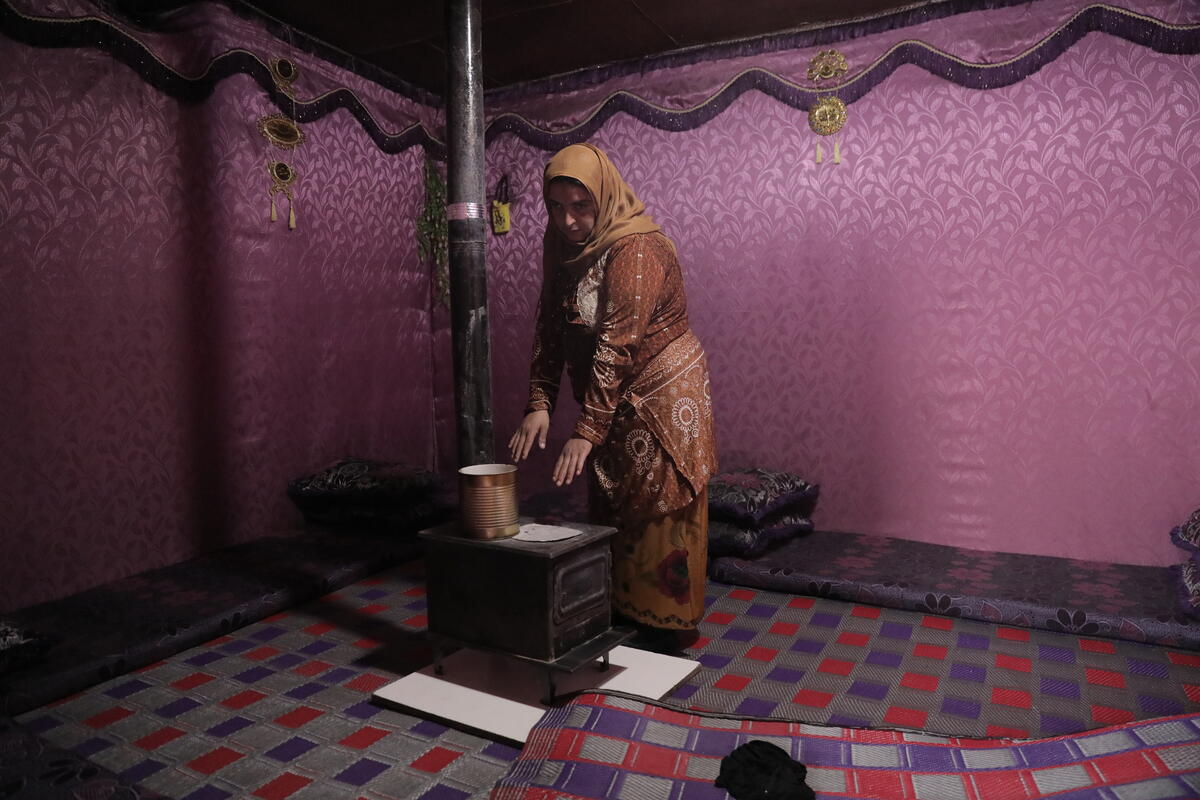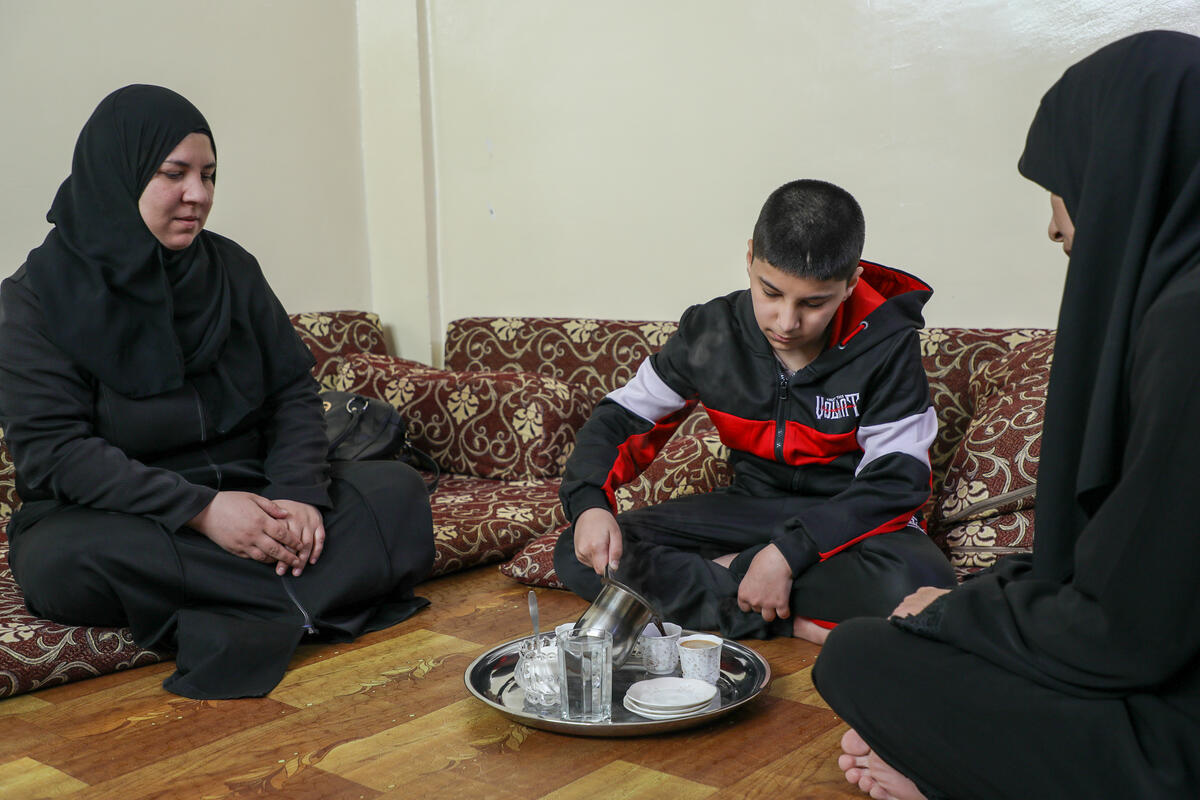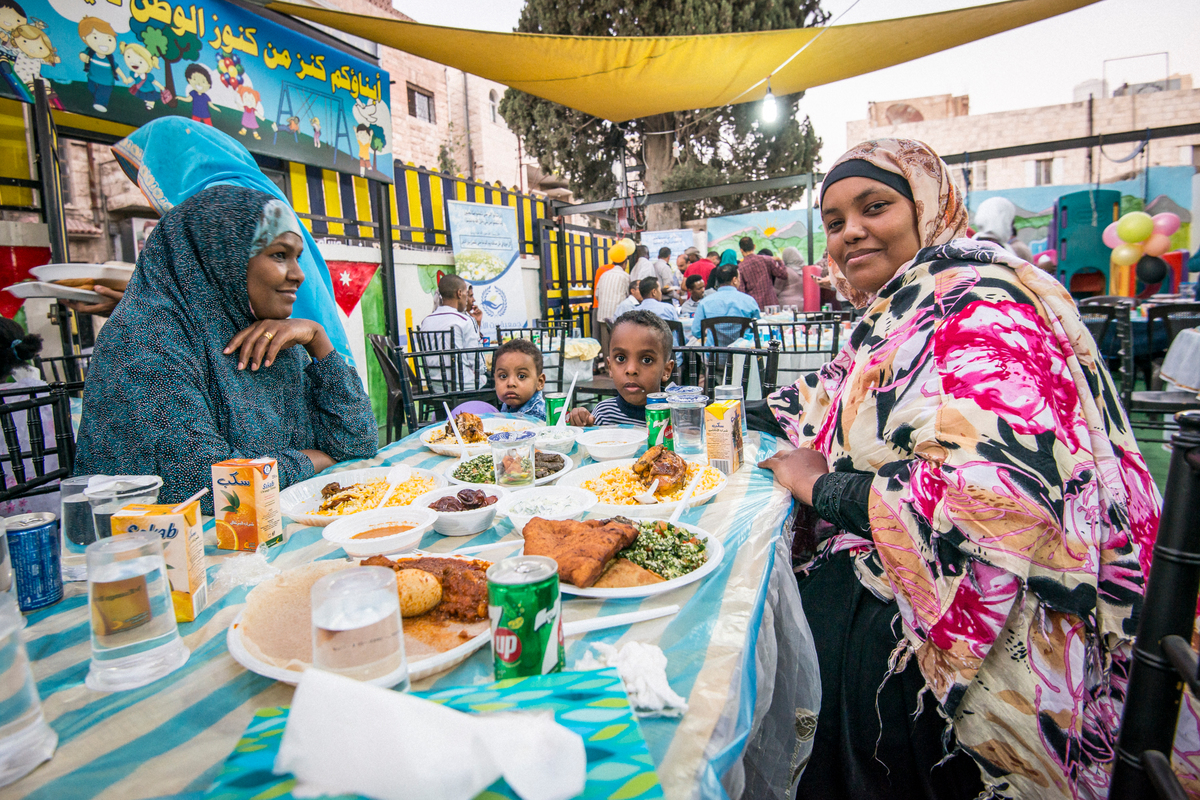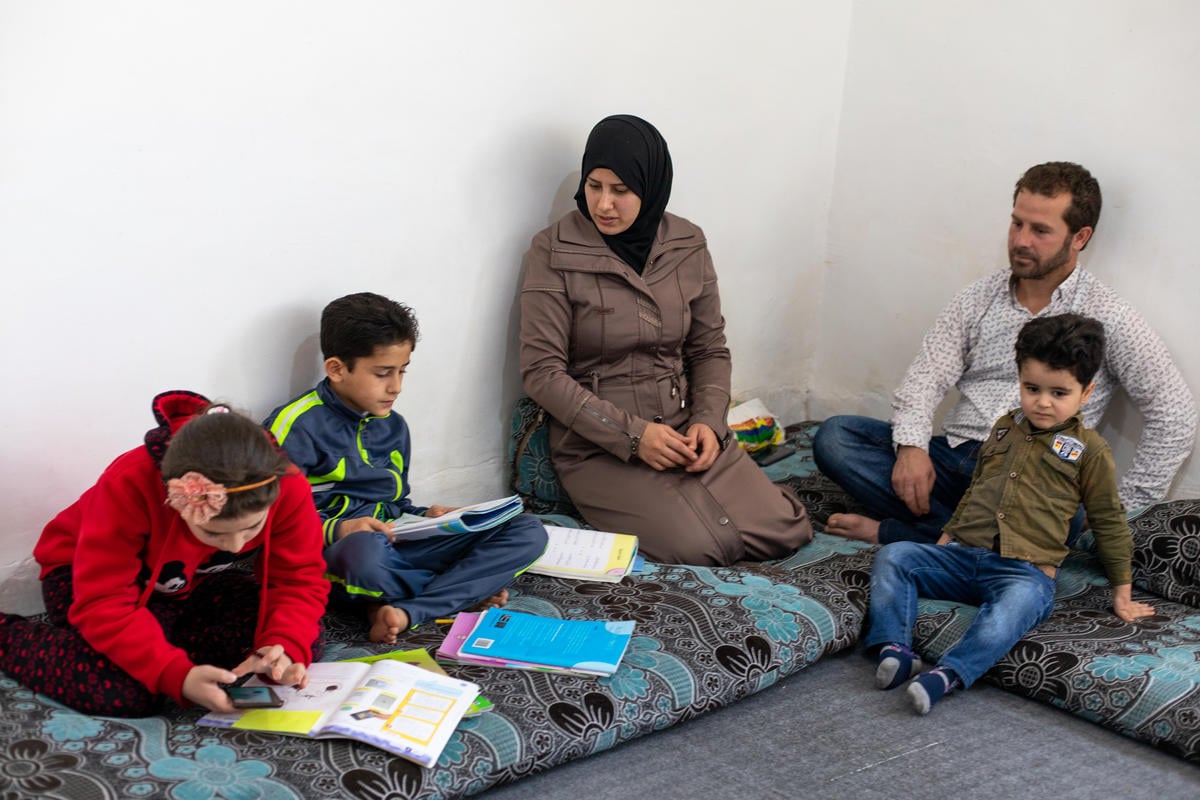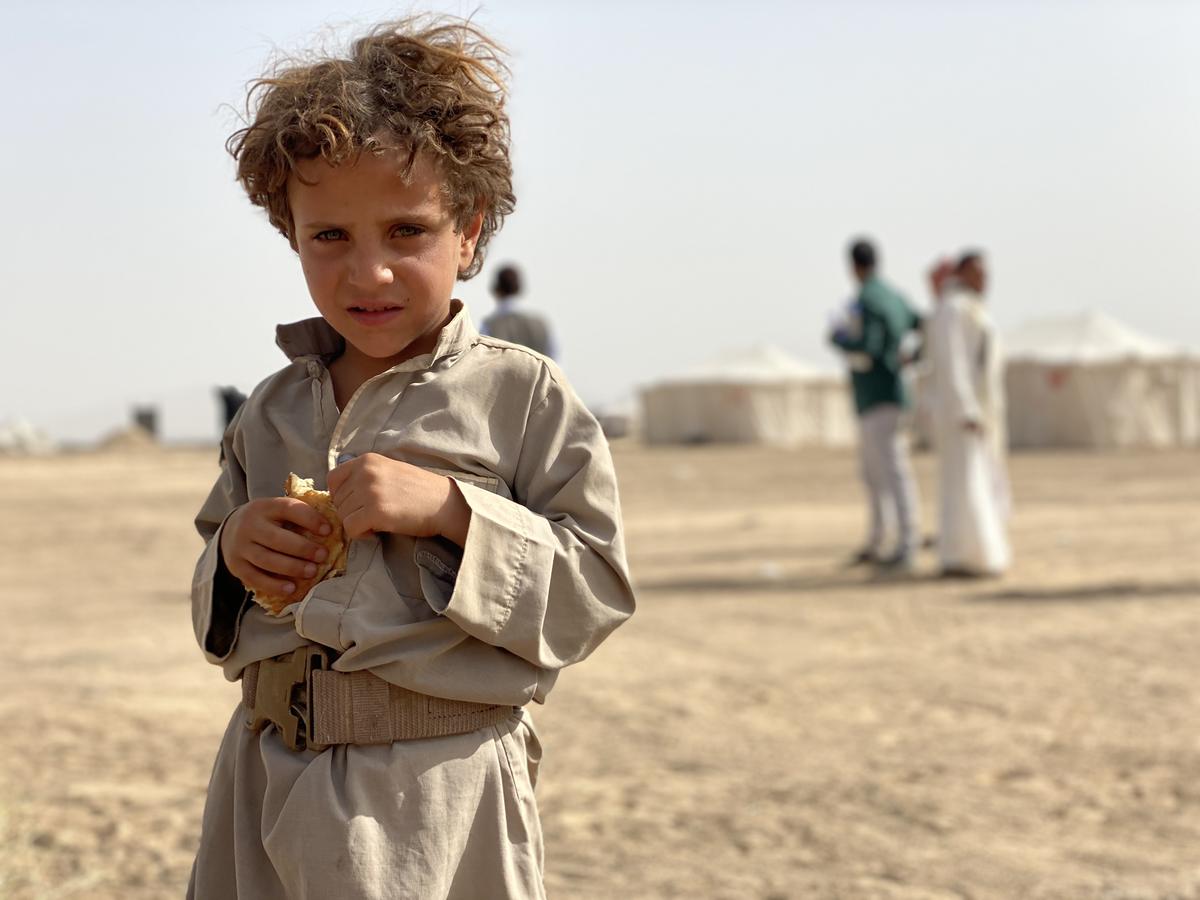Iraqis and Jordanians break bread together during Ramadan
Iraqis and Jordanians break bread together during Ramadan
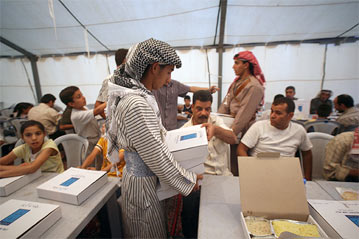
AMMAN, Jordan, October 4 (UNHCR) - As the sun sets behind a crowded market in the capital Amman, Jordanians and Iraqis sit together on long tables and break their daytime fast. Since the beginning of the Islamic holy month of Ramadan, the UN refugee agency has distributed free meals every evening to more than 800 refugees and needy locals in Amman and the city of Zarqa.
On one recent warm evening in Amman's Hashami Al Shamali district, the seats in one of the large UNHCR food tents were all occupied. Several registered Iraqi refugees waiting for their meal said they came every night; some took extra food back home for their families.
"I came from Iraq one year ago and my economic situation is deteriorating," said Ahmad from Baghdad. "My friend and I live nearby on our own, we were passing by the market and we saw the tent and since then we come every evening to break the fast," added the 27-year-old as he tucked into a meal of soup, meat and rice.
Some among the estimated 750,000 Iraqi refugees in Jordan have financial resources and are self-sufficient, but even greater numbers are running out of money and valuables to trade. They are finding it hard to make ends meet and to feed themselves.
The needs of these vulnerable Iraqi refugees have put an enormous strain on already overstretched public services in Jordan. It's the same in neighbouring Syria, where some 1.4 million Iraqis have fled, and in other host countries, which need international help to cope with the unexpected pressure.
UNHCR and its partners are trying to assist in various key areas, including nutrition, health and education. The Ramadan soup kitchens are one way to ensure that people are getting a daily meal and honouring traditional Islamic practice. Muslims believe that feeding someone iftar (the evening meal during Ramadan) as a form of charity is very rewarding.
"The Ramadan tents and meal distribution show the increase in the level of vulnerability among Iraqis, but also among Jordanians who are being affected by the large presence of Iraqis" said Imran Riza, UNHCR representative in Jordan. He said the locals needed to be helped too.
Mohammad, a 45-year-old Jordanian, was eating at a table with his family of six. "We appreciate that UNHCR invites us as well as the Iraqis here. This is a humanitarian gesture on their behalf and we recognize that," he said. "Iraqis are suffering during this time, but Jordan is a small country with limited resources so we feel that the international community must recognize this."
The Iraqi refugees who spoke to UNHCR were all grateful to Jordan, but many said their lives here were becoming increasingly difficult. Saib, who fled Baghdad last year after he was threatened, thanked Jordan for offering a safe haven.
"However, my daughter is always ill here, I have no job and my other daughter refuses to study or attend school anymore," he said. "Life is becoming too difficult here and I can no longer face my family. Sometimes I don't have money to feed them anymore and I feel lost," he added.
Saib is among more than 4 million people who have been uprooted from their homes in Iraq. The UN refugee agency estimates that more than 2.2 million have taken refuge overseas, including the hundreds of thousands in Jordan.
UNHCR has started a monthly food distribution for more than 1,500 Iraqi families in Amman and will soon extend this to Zarqa and Irbid. Meanwhile, UNHCR and sister agencies last month issued an appeal for US$84.8 million to help host countries meet the health and nutrition needs of Iraqi refugees.
Ramadan ends next week with the holiday Eid ul-Fitr, when feasts are held.
By Rana F. Sweis in Amman, Jordan

